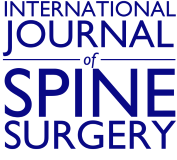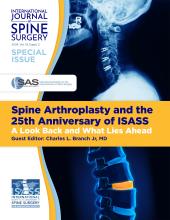ABSTRACT
Background Dysfunction and weakness due to atrophy of the paraspinal muscles is a major issue after posterior spinal fusion (PSF) surgery, resulting in pain and disability. Considering the role of protein in muscle regeneration, it seems that protein supplements after surgery may prevent muscle atrophy. To date, to our knowledge, no intervention study has investigated the effect of protein supplementation on the volume of paraspinal muscles, pain, or disability after PSF.
Methods In this randomized, double-blind, placebo-controlled clinical trial, patients were randomly assigned to a control (placebo + diet with 1.2 g/kg body weight of protein, n = 40) or a protein supplementation (36 g/day + a diet with 1.2 g/kg body weight of protein, n = 40) group, which received intervention from 48 hours before to 1 month after surgery. The cross-sectional area (CSA) of the paraspinal muscles was measured by thin-slice computed tomography, and pain and disability were assessed using the visual analog scale and Oswestry Disability Index.
Results After 4 weeks of protein supplementation, the CSAs of multifidus and psoas muscles on both sides were significantly higher in the supplementation group than the placebo group (P <.001). Less atrophy was seen in the right erector spinae and quadratus lumborum muscles in the group receiving protein supplements than the placebo group (P < .001). In addition, protein supplementation was significantly negatively correlated with both pain (P < .001) and disability (P < .001).
Conclusions In conclusion, we demonstrated that 36 g/day protein supplementation significantly increased the CSA of muscles and reduced the atrophy, pain, and disability after PSF surgery.
Level of Evidence 2.
Footnotes
Disclosures and COI: The authors declare that they have no known competing financial interests or personal relationships that could have appeared to influence the work reported in this paper. Trial registration: ClinicalTrials.gov identifier: NCT04300517.
- This manuscript is generously published free of charge by ISASS, the International Society for the Advancement of Spine Surgery. Copyright © 2021 ISASS







